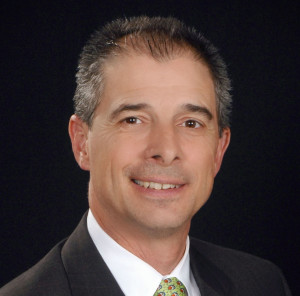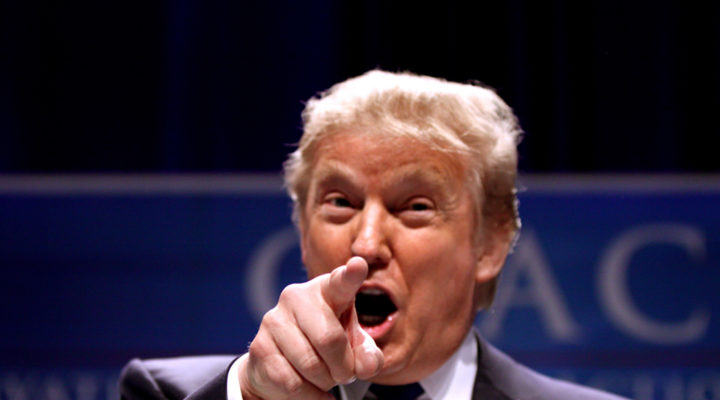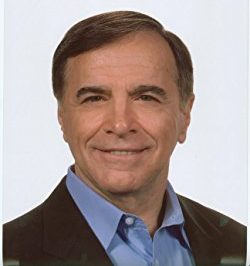Pastors are seeing a surge in church members, colleagues and friends emotionally battered from months of relentless dread generated by national politics. Psychologists have even coined a term for it: Trump anxiety.
Julie Pennington-Russell has seen plenty of it.
Recently, a man she describes as stable, positive and well-balanced suddenly broke down during a meeting.
“It reminds me how brittle people really are,” says Pennington-Russell, senior pastor at First Baptist Church in Washington, D.C.
There has been plenty for Americans to stress out about since Trump’s inauguration in January, including his Twitter tirades and his policy efforts aimed at public education, health care, immigration and refugee resettlement.
For some, the past two weeks have raised stress levels even further. Former FBI Director James Comey’s congressional hearings preceded Attorney General Jeff Sessions’ testimony on Capitol Hill. Millions of Americans were glued to televisions, laptops and smartphones to soak in the spectacle.
But psychologist Steven Stosny, in an article for Psychology Today, said the condition was in play long before that.
“Since last summer, my practice has been overwhelmed with distress calls from people coping with anxiety in our current political environment,” Stosny wrote in the April article titled “How to Cope With Trump Anxiety.”
His clients first started exhibiting signs of the anxiety during the presidential campaign last year.
And now, he continued, “it seems that we wake up daily to an endless stream of shocking executive orders and headlines questioning our national security and the foundation of our electoral process.”
The situation is exacerbated by the 24-hour news cycle and the prevalence of social media, Stosny said.
But the fears are real.
“Some people are worried about losing their health care or about future economic distress. Others are angry about the travel ban while others fear for their civil rights and personal safety. The list of concerns is daunting.”
Self-empowerment is a key way to respond to Trump anxiety, Stosny said. That includes writing letters and lobbying Congress.
“The first rule of empowerment is focus. If we focus on what we cannot control, like other people’s opinions and behavior, we feel powerless. When we shift focus to what we can control, for example, our own behavior and the meaning of our experience, we feel empowered.”
Connecting with others, exercising and journaling also are powerful tools to combat anxiety, he said.
Having a good attitude also helps.
“Personal and national growth typically follow struggles with anxiety,” Stosny said. “Nervousness forces us to reevaluate what is most important and what we most want for ourselves, our loved ones and our fellow citizens.”
In Washington, Pennington-Russell said she has encountered many people who need help coping.
“People have increasingly come to me asking for referrals for therapy. At least once a week I’m asking someone, ‘Are you taking care of yourself?’”
“A lot more than I used to I am reminding people to care for themselves and to reach for the things that will help them find balance,” she said.
The anxiety of the era is working its way into churches, and especially in Washington, where so many members also are connected in some way to government.
“We have people who work for the State Department, in the EPA, and others, who walk in on Sundays looking like they are picking through landmines.”
But ministers are being affected, too. Conversations with other pastors “end up meandering in that direction about how anxious and stressed out their congregations are.”
The result for some is that the churches themselves become systemically anxious.
“We must keep grounding our congregants and ourselves in what is not shakeable,” Pennington-Russell said.
And there is something positive in the current political mayhem, she added.

Russ Dean
“We are in that kind of time when churches have so much to offer. As much as ever, churches have a beautiful opportunity right now to reach people who otherwise wouldn’t think of reaching for God.”
The effects of Trump anxiety also are being reported in areas beyond the nation’s capital.
“I preached about this right after the election,” said Russ Dean, co-pastor of Park Road Baptist in Charlotte, N.C.
That sermon was inspired by contacts from frightened church members, including a gay man afraid for his life and worried that his marriage would be annulled. Dean said he began to realize these concerned went far beyond the usual partisan hand wringing that follow major elections.
That deep-seated anxiety has also worked its way into the church family in ways never seen before at Park Road, he said. In one case, Facebook posts by some members upset others and caused tension in Sunday school classes. And he and his wife and co-pastor Amy Dean have felt constrained to speak in ways they have never experienced previously, he said.
“There has just been more anxiety in the system,” Dean said.




